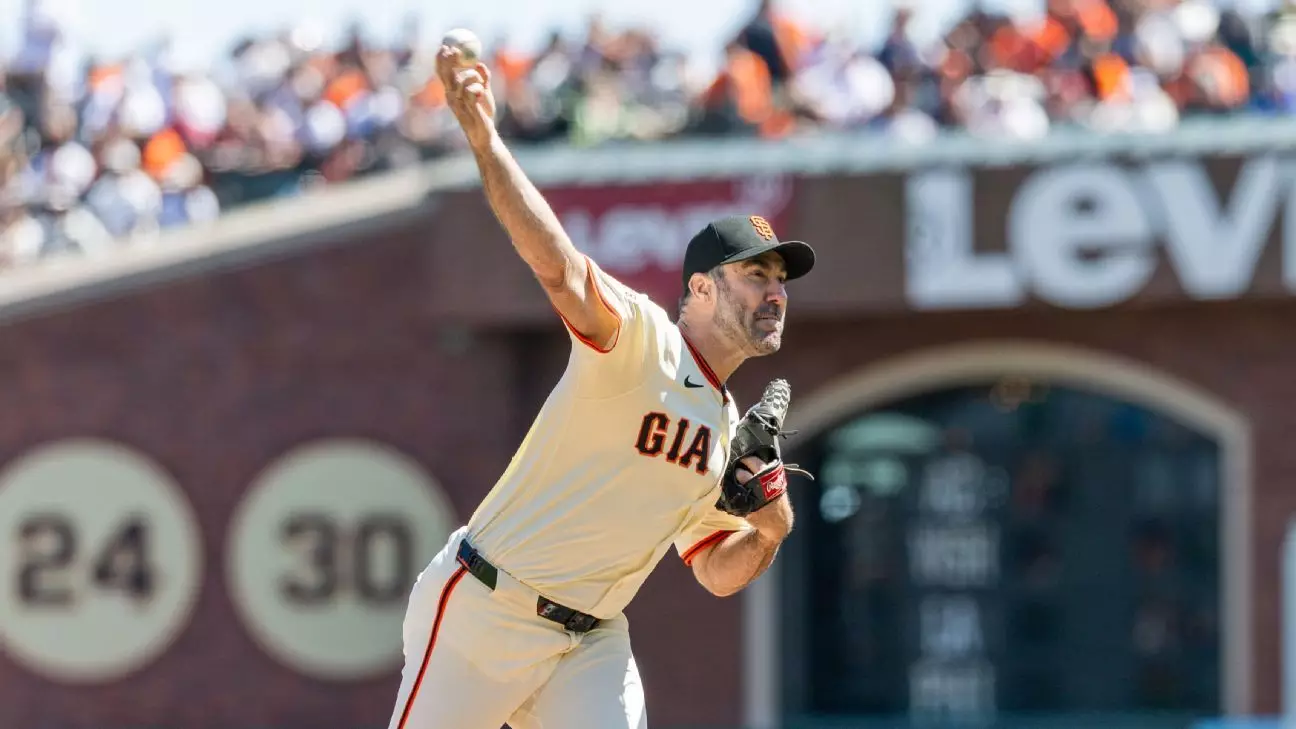Resilience in the Face of Adversity: The Challenge of Justin Verlander’s Injury
Life has a way of throwing curveballs when least expected, and for Justin Verlander, this came in the form of an unexpected injury. As a devoted baseball fan, there’s always a pang of uncertainty when your favorite player goes down, and Verlander’s recent setback is no exception. His journey through this challenge is not just about the physical recovery but also about mental strength and resilience. It’s a story that resonates with anyone who has faced adversity and chosen to rise above it.
Being sidelined due to a right pectoral injury is undoubtedly a tough break for Verlander, especially at 42. As someone who’s watched him dominate on the mound for years, it’s hard not to feel a pang of empathy. His career has been a testament to perseverance, and this latest hurdle serves as yet another chapter in his storied life. Whether you’re a longtime fan or new to his journey, there’s something inspiring about witnessing how he navigates these challenging waters.
Verlander’s situation brings to mind the universal theme of resilience that we all grapple with at various points in our lives. When faced with setbacks, it’s easy to focus on the negatives, but there’s power in choosing to see the opportunity for growth. This injury is more than just a physical ailment; it’s an invitation for Verlander—and for us as observers—to embrace change and come out stronger on the other side.
Key Takeaways
- Justin Verlander’s injury is both a physical and mental challenge.
- The Giants must adapt quickly to his absence from the rotation.
- Verlander’s resilience serves as an inspiration beyond the baseball field.
Understanding the Impact
The ripple effects of Verlander’s injury extend far beyond just missing games. His absence leaves a gap in the Giants’ rotation, a void that statistics alone cannot fill. With a 4.33 ERA and struggling numbers this season, it’s clear that Verlander was yet to find his rhythm before this setback. However, numbers don’t capture the full story—they miss out on the leadership and experience he brings to the field. His presence is missed not just in performance but also in morale.

As fans, we often get caught up in stats and wins, but athletes are human too, dealing with their own challenges. Verlander’s struggle isn’t just about getting back to throwing strikes; it’s about overcoming self-doubt and pushing past physical limits. The comments he made about his outing against the Athletics highlight this internal battle: “I thought I was going to be just fine,” he said, only to realize mid-game that things weren’t as they seemed.
Preparing for What’s Next
For the Giants organization, navigating this period without Verlander requires strategic thinking and adaptability. Manager Bob Melvin’s decision-making will be tested as they determine how best to fill the gap left by their ace pitcher. With uncertainty surrounding who will start Saturday’s game, it becomes essential for the team to rally together and find creative solutions.
The hope remains that Verlander’s hiatus will be brief enough for him to return fully recovered and reenergized. This situation highlights what makes sports so compelling—the unpredictable nature of the game mirrors life’s own uncertainties. In adversity lies potential growth, and Verlander’s journey might offer valuable lessons for his teammates and fans alike.
Final Thoughts
Injuries are an inevitable part of sports, but how athletes respond can define their legacies. For Justin Verlander, resilience isn’t just about bouncing back; it’s about redefining what’s possible despite setbacks. As we follow his path towards recovery, there’s an opportunity to reflect on our own challenges and how we face them. Like Verlander, may we all find strength in adversity and emerge stronger than before.
Justin Verlander
baseball injury
resilience
San Francisco Giants


Leave a Reply